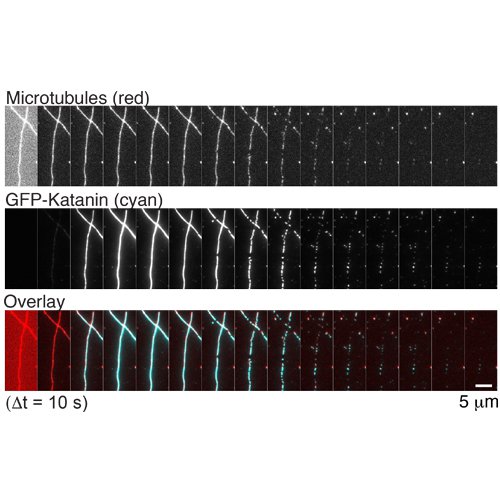
Jennifer Ross, professor and department chair of physics, has been awarded a three-year R15 grant from the National Institutes of Health to investigate the regulation of a key enzyme called katanin.
Katanin – named after the Japanese samurai sword, katana – is an enzyme present in cells that destroys other cellular components. Specifically, katanin can cut filaments inside the cell called microtubules, which are the “bones” of the cell that can grow, shrink and rearrange. Katanin plays an important role in controlling and regulating microtubules in space and time, and therefore plays a vital role in organismal development.
When katanin is missing or mutated, it can cause developmental defects, some of which affect brain development. Mutated or missing katanin can result in smooth brain (lissencephaly) or small brain development (microcephaly). According to Ross, this is a common defect seen when first cousins marry, but it was only recently determined that the molecular culprit was katanin.

Missing or mutated katanin can also cause defects in cells with cilia (microscopic hairlike structures inside cells that sense the environment and move fluids). Cells with cilia are important in the development and function of kidneys, lungs, and intestines, and katanin mutations can result in a disease state.
For Ross, a physicist, this research is especially exciting because it allows her to explore the physical machinations of the inside of the cell, which are still a major mystery.
Understanding how katanin works will provide researchers insights into proper human development and create a new tool that can be used to manipulate the microtubules inside cells.
